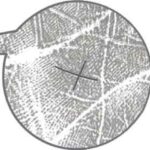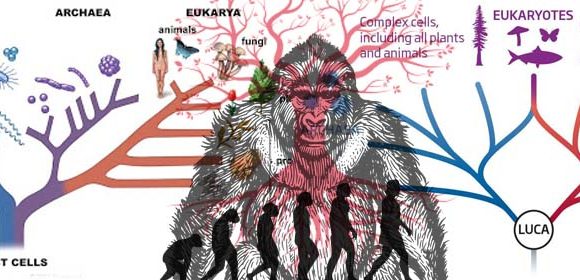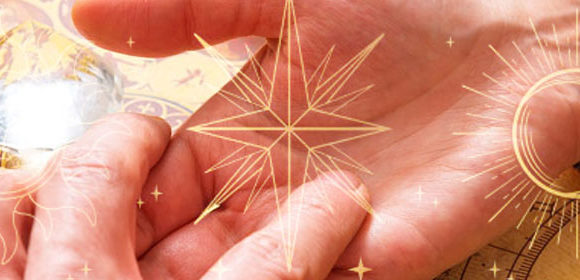Taken from the book The Mystery Experience by Tim Freke
A particularly problematic source of internal strife is what is often referred to as the ‘shadow’. The great psychologist Carl Jung, for whom this was an important concept, writes :
The shadow personifies everything that the subject refuses to acknowledge about himself
The shadow is the part of ourselves that we don’t want to consciously acknowledge. The part we don’t like. The part we’d prefer to repress than examine. For people who think of themselves as ‘spiritual’, the animal self with all its instinctual lusts can become the shadow. For people who think of themselves as ‘selfless’, selfish urges become the shadow. For people who think of themselves as ‘calm’, anger becomes the shadow. We all cast shadows.
The shadow is a problem because what we repress comes back to bite us when we least expect it. This can happen at any time. One minute we’re happily going about our business, then something happens to trigger the shadow. And we find ourselves behaving as if we’re an entirely different person.
When I experience this it feels as I’ve been hijacked by some unconscious part of myself. For example, I like to believe I’m a tolerant and sensitive person. But a situation may suddenly arise when I find myself being annoyed and dismissive towards someone. Often someone I normally care about. It’s as if I’ve become someone else. Someone I don’t like.
When I’m overtaken by my shadow I find it hard to recognize this is happening, although it’s perfectly obvious to everyone around me. I don’t want to admit to myself I’ve been hijacked because I’ve become identified with the shadow. And the easiest way to avoid this awful fact is to project my shadow onto someone else. It is not me that’s angry and insensitive…. It’s you!
The more I don’t want to face the shadow the more unconscious I become, until I’m truly behaving in ways that at other times I would find appalling. Yet now my behaviour seems like a reasonable response to the unreasonable behaviour of those around me.
Being hijacked by the shadow is a disturbing experience I’d prefer to forget. So rather than face the way I’ve been, I prefer to repress any memory of how painful it felt. Once the storm has passed I go back to the idea of Tim as a reasonable sort of guy. Problem solved… until it happens again.
How can we prevent ourselves being hijacked by the shadow? The clue is in the name. We need to bring it into the light. We need to consciously acknowledge this part of ourselves. Only then will it stop unconsciously possessing us from time to time.
When we’re conscious of the deep self and feel the deep love, it becomes much easier to acknowledge those parts of our personality that we would normally choose to ignore, because we’re able to love ourselves as we are. And once we’ve consciously acknowledged the difficult parts of our personality, if they arise within us we can see them coming, so we’re less likely to be overcome by them. We are conscious of what’s happening, so we can choose a healthier option.
The Unloved Self
The experience of being overcome by some unconscious aspects of ourselves easily creates the idea of a devil within. The ancients saw this literally as demonic possession. Modern psychology has transformed this primitive conception into the idea of being possessed by the shadow.
This was a big step forward, but I also have reservations about calling the repressed part of ourselves the ‘shadow’. It’s an evocative term that captures the idea that the shadow is the darkness within us. But I also find it helpful to think of the shadow in a more approachable way as simply the ‘unloved self’.
The shadow is that part of ourselves that we regard as unlovable, so we seek to repress it. And this unloved self is rooted in the unloved past. There are things we’ve experienced that were so painful that we don’t want to remember them. There are ways that we’ve behaved that were so disturbing we push them to the back of our mind.
The unloved self is what we don’t want to remember about our past. It is our hurt self that skulks in the shadows like a wounded animal. And mainly that’s where it stays. Until a life situation reawakens the painful memory and we’re involuntarily forced to play out the pain once again.
How can we prevent ourselves being overwhelmed by the unloved self? The clue is in the name. We need to love it. We need to care for our own wounded self as compassionately as we would care for someone else in great distress. We need to heal the pain of the past.
Many forms of modern psychology specialize in bringing the shadow into the light, so that we can love the unloved self. Their profound insights are beyond the scope of this book… but the simple secret that makes it possible to heal the wounded self is to become deep awake.
When we feel deep love we can embrace those parts of ourselves that normally seem unlovable. We can allow ourselves to remember the suffering we prefer to forget, which we’ve hidden away in a dark corner. We can accept what has happened to us. We can come to redeem the past by seeing it in a new way.
In redeeming the past we redeem the shadow, because we understand how the shadow has been case. We empathise with the unloved self’s point of view, so that shadow ceases to an unconscious menace, and becomes an inner wound that we need to gently tend. When we become deep awake we can be kind to ourselves. And it is kindness which heals our hurt.
So the bad news is that there’s a shadowy, unconscious, unloved part of ourselves that can cause us all sorts of grief. But the good news is that what we’re unconscious of we can choose to make conscious. We can choose to bring the shadow into the light. This can be a painful process, but it leads us deeper into the mystery experience. Carl Jung explains:
The shadow is a tight passage, a narrow door, whose painful constrictions no one is spared who goes down to the deep well. But one must learn to know oneself in order to know who one is. For what comes after the door is, surprisingly enough, a boundless expanse full of unprecedented uncertainty, with apparently no inside and no outside, no above and no below, no here and no there, no mine and no thine, no good and no bad. It is the world of water, where all life floats in suspension; where the realm of the sympathetic system, the soul of everything living, begins; where I am indivisibly this and that; where I experience the other in myself and the other-than-myself experiences me.








